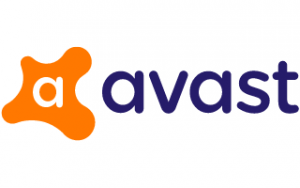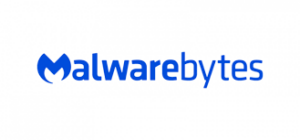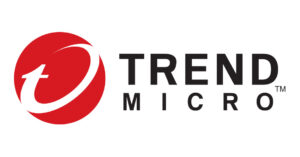There’s a lot to like about ESET antivirus software, but it’s held back by imperfect threat protection and a lack of iOS support.
ESET antivirus software review
According to the latest test results at the time of writing, Trend Micro and Norton are the antivirus services to beat when it comes to real-time threat protection. Admittedly, Bitdefender and Malwarebytes aren’t far behind. While ESET has imperfect threat protection and doesn’t cater to iOS users, it’s still a reliable and scalable antivirus solution.
ESET price
At first glance, ESET has an overwhelming number of choices. Not only are there seven different options (one of them dedicated to parental controls), they also have scalable device numbers and subscriptions that last one to three years. There are great ESET savings if you opt for two or three-year subscriptions, plus there’s a 30-day money-back guarantee to take advantage of. Unfortunately, there’s not a free version of ESET.
For the main products, though, prices start at $49.95 for ESET NOD32 Antivirus, $59.95 for ESET Internet Security, and ESET Smart Security Premium for $79.95. ESET NOD32 Antivirus protects Windows and MacOS devices, while the other two protect both of those and Android devices. The trick, though, is pricing starts with one device.
ESET NOD32 Antivirus offers protection for up to five compatible devices, while Smart Security Premium and Internet Security both scale up to 10 apiece. Conveniently, you can expect to pay $10 more per device you add across services. It’s great to see prices are in Australian dollars and that they don’t go up after the first year.
Even with five devices selected, there’s some less-than-stellar encouragement to pay more for mobile protection, even though it’s already covered. Be sure to factor that into your device count if you go with ESET. As for payment, ESET accepts major credit cards (Visa, MasterCard, Discover, Amex, and Diners Club), plus Google Pay and PayPal.
ESET features
All three core versions of ESET antivirus software come with real-time protection, which covers malware, phishing, and ransomware. Similarly, all ESET versions support Windows and MacOS devices, but ESET Internet Security and Smart Security Premium include support for Android devices.
Additionally, ESET Internet Security includes protection for smart devices and networks, as well as banking and privacy protection. On top of all of these features, ESET Smart Security Premium also includes:
- Secure file data encryption and sharing
- Password manager functionality
- LiveGuard new-threat protection
ESET sign-up and setup process
Outside of the three main ESET options detailed above, there are also the following options to weigh up:
- ESET Cyber Security Pro (advanced MacOS protection)
- ESET Cyber Security (basic MacOS protection)
- ESET Mobile Security for Android (Android phone and tablet protection)
- ESET Parental Control for Android (parental controls for Android devices)
Admittedly, I’d advise ignoring all of those additional options in favour of the three core choices. For my tests, I bought a two-device version of ESET Smart Security Premium to test on a Windows 11 laptop and an Android smartphone. The ESET sign-up process is incredibly straightforward as long as you remember to ignore the prompt to spend $30 more for already-factored-in mobile protection.
After payment, you’re presented with a licence key and the renewal date. On Windows 11, the installation wizard is incredibly straightforward, though it’s nice to have the option for browser-based installation instructions and the user guide if you want to read more. ESET checked for potential conflicting apps (and didn’t find any), then let me personalise some basic protection and data-sharing options.
Creating an account is painless and done in a browser, and it’s good to see password requirements that encourage a basic level of inherent security. Activation and additional installation are a few clicks and credentials inputs away from being ready to go.
Overall, I was impressed with how easy it was to sign up for and install ESET Smart Security Premium on Windows. Android installation followed relatively the same process. There’s a QR code login option, but I was unable to find a corresponding QR code within my ESET account. After using my ESET login details, I set a name for my device, followed the Android permissions prompts, and was ready to go. Just be wary of the prompt for a free premium trial if you’ve already paid for a licence.
ESET user experience
The Android version of ESET automatically scanned my device, which was a great convenience feature. That said, despite logging in with my ESET credentials, I was still forced to manually enter a licence key to fully unlock the Android features.
Admittedly, the unlocked Android features are quite impressive. Network inspector scans your home network for potential vulnerabilities, while security audit is a great visual tool for flagging potential security issues (or manually checking them yourself). All other features are deactivated by default, including anti-theft, anti-phishing, app lock, payment protection, and call filter options.
It's a similar story on Windows, with certain features disabled by default: namely, data encryption, parental controls, anti-theft measures, and a password manager. Once you choose which of those you want to use, the main ESET screen offers a clean interface and should show the results of the first automated scan. That’s probably enough for most users, but the setup tab is absolutely worth digging into to personalise protection across computer, internet, network, and security tools.

ESET virus and malware protection
Typically, we rely on AV-Comparatives and AV-Test—two independent antivirus software testers—for the latest data on in-depth real-time threat protection. For ESET, there wasn’t any recent data available for AV-Test, so we’ve stuck with AV-Comparatives and also delved into some additional tests from MRG Effitas.
According to the latest available real-world protection test results from AV-Comparatives, ESET had mixed results. It had the highest compromised percentage (admittedly, only 1.6%), which means it shares the lowest overall threat protection with Malwarebytes (98.4% apiece). While those are still solid scores, the most impressive result is the complete lack of false positives identified during testing.
As for MRG Effitas tests, ESET boasted zero threat misses overall for Android tests with 0.53% detection of threats prior to their installation and 99.47% detected as they downloaded. ESET also had bragging rights to 100% effectiveness against potentially unwanted applications, as well as trojan, banking, SMS, and spyware detection.
For Windows, ESET only missed 0.83% of full-spectrum threats but 11.76% of adware tests. Admittedly, ESET impressed with no false positives and 100% accuracy for other tests involving exploits, online banking, and ransomware. ESET also had the best performance test results of the eight services tested.
ESET vs other antivirus services
The table below showcases how ESET compares to other antivirus services that we’ve reviewed.
Prices are accurate as of post date. Read full disclaimer.
Final word
ESET may have imperfect test results, but its real-time threat protection is still robust enough not to rule it out completely. With scalable pricing, a solid range of extras (if you don’t mind paying for it), and a user-friendly interface, ESET is a decent antivirus service. That said, it’s still not as recommendable as competing services from the likes of Bitdefender, Kaspersky, and Trend Micro (and after the latest AV-Comparatives test results, Avast and AVG).
How we review antivirus software
Our antivirus testing starts with basic feature comparisons, including pricing and whether there’s a free version or easily accessible free trial. Letting people try before they buy scores well with us. Then we check to ensure antivirus software includes critical features like real-time protection and speedy scanning tools, ideally without a massive performance impact on compatible devices.
The ease of installation is then evaluated as well as how well an antivirus service guides the user and encourages them to explore additional security settings (where available). Antivirus software that also includes extended features—like a VPN, password manager, digital file shredder or other bolt-ons—scores points for versatility.
Ultimately, though, we always go back to how well an antivirus service performs on key metrics: namely, threat protection and performance impact. For these factors, we defer to the extensive ongoing testing data that’s readily available from antivirus authorities AV-Comparatives and AV-Test. If antivirus software scores well in those external tests, it has a great chance of scoring well with us, too.
FAQ
Below are the answers to some of the most pressing ESET questions.






